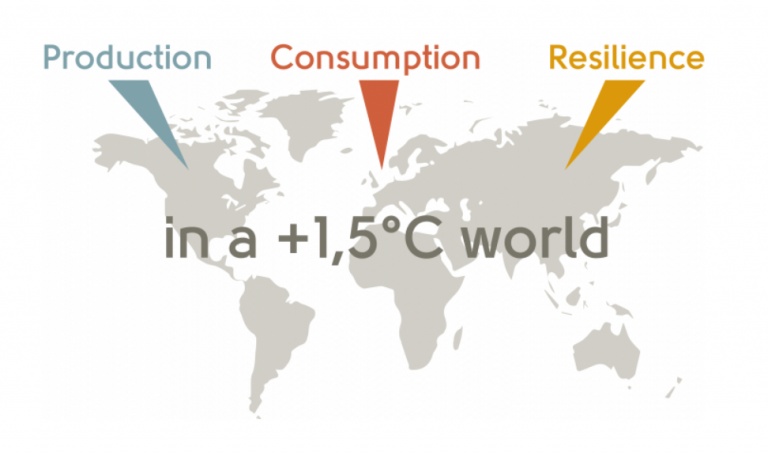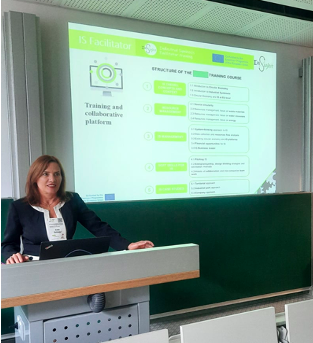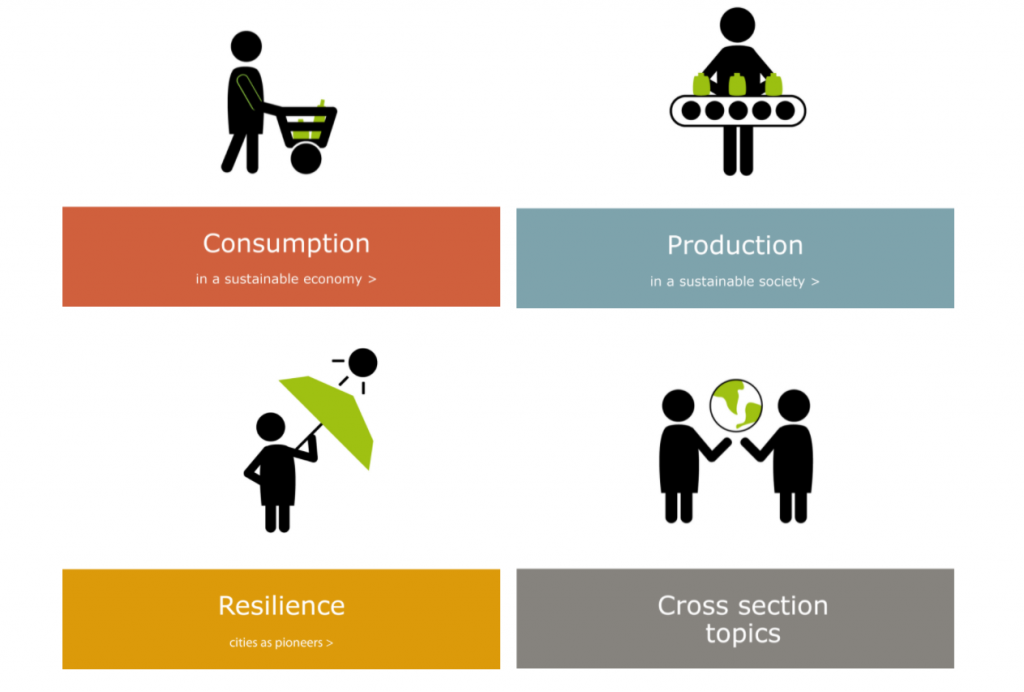From 8th to 10th September 2021 the 20th European Roundtable On Sustainable Consumption And Production (ERSCP) took place in Graz, Austria, organized by “StadtLABOR” a SME working on Innovations for Urban Quality of Life, in cooperation with the ERSCP Society . The Roundtable was first held in Graz in 1994 under the title “European Roundtable on Cleaner Production Programs“ and returned this year with its 20th edition. In its almost 30 years, the Roundtable has taken place in many European countries and has contributed significantly to the development of research on sustainability.
This year, the ERSCP21 covered several UN Sustainable Development Goals. Goal 12 “Responsible Consumption and Production” met the core target of the conference. But many other issues were in the focus as well, like SDG 4 “Quality of Education”, SDG 6 “Clean Water and Sanitation”, SDG 7 “Affordable and Cleaner Energy”, SDG 9 “Industry, Innovation and Infrastructure”, SDG 11 “Sustainable Cities and Communities” and SDG 13 “Climate Action”.
The Conference covered three priority topics: Consumption in a sustainable society, Production in a sustainable economy, Resilient cities, and their infrastructures as pioneers of change; and several Cross-sectional topics among these, Education (all levels from kids to politicians).

In this context, the INSIGHT consortium participated with a scientific entitled “Facilitating Industrial Symbiosis” and underlining the importance of Industrial Symbiosis (IS) – as a strong pathway to implement a circular economy, by developing waste-as-resource business models aiming at reducing waste and promoting cross-sector and cross-cycle collaborations through the creation of markets for secondary raw materials (EEA, 2016).

In the article, the authors (Aida Szilayi – National Centre for Sustainable Production and Consumption, Romania; Almudena Muñoz – Technological Centre of Furniture and Wood of the Region of Murcia, Spain; Ivana Russielllo -SFC Sistemi Formativi Confindustria, Italy) described, how the development of IS solutions through industrial and territorial management systems is still in a minimal stage.This conclusion emerged during the first phase of the project in which the Insight consortium conducted an analysis of the literature and of the state of the art on the main barriers related to IS in the INSIGHT partner’s countries, that was also important to define gap and needs necessary to improve IS.
Moreover, the Conference enabled the INSIGHT Consortium to share and disseminate the project’s first results and to highlight the aim at fostering the implementation of Industrial Symbiosis (IS), a circular economy business model (waste-as-resource). This will be achieved through the development of a training material whose direct impact will result in innovation and excellence of entirely new industry opportunities as well as the transformation of the existing industrial base in Europe. The INSIGHT speech sparked much interest among the participants. In particular people asked information about the training content and the learning platform. Concerning this, one relevant feedback was that the facilitator profile can be an important key figure to foster IS and a very good job opportunity for the graduating students.


